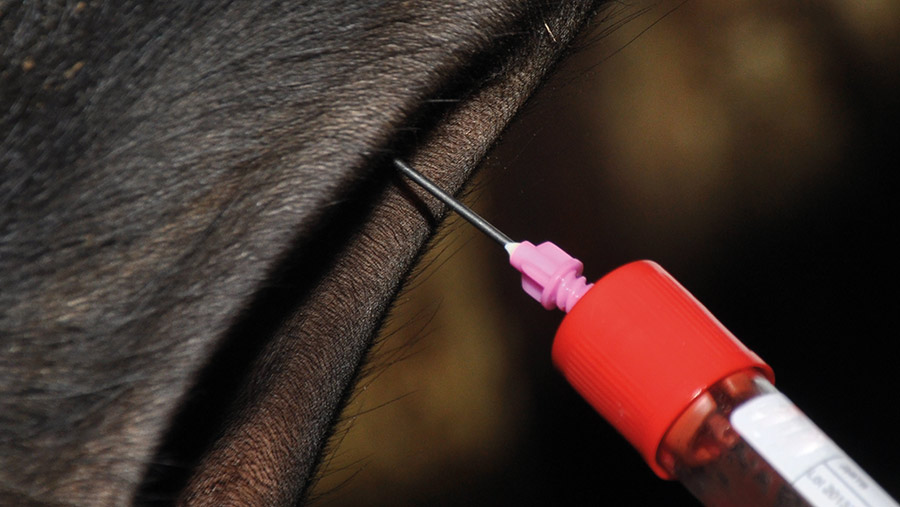Row breaks out over new Johne’s disease test arrangements
 © Evgeny Govorov/Adobe Stock
© Evgeny Govorov/Adobe Stock Pedigree beef cattle breeders are concerned that changes to Checs testing arrangements for Johne’s disease, due to take effect from 1 July, will affect values and could be counterproductive.
The changes are intended to strengthen and standardise the testing regime and reduce the chance of infected animals being sold to unsuspecting buyers. But breeders are adamant the current scheme works well and does not need amending.
See also: Johne’s in cattle – how to prevent and manage the disease
Under current arrangements, cattle older than two years are tested annually for infection within Checs-approved health schemes, using a whole-herd blood test for antibodies.
But, due to the occasional occurrence of “false positives”, some schemes include a confirmatory test, checking the cow’s faeces for signs of actual disease.
If none are found, the positive blood test does not count towards the herd’s risk level. So, even if there are multiple positive blood tests, but all follow-up faecal tests are negative, the herd can remain Risk Level 1 – the lowest risk category.
Differences
But Checs says differences between various health schemes lead to a lack of consistency and, given that faecal testing also carries a risk of “false negatives”, the board is looking to tighten the regime.
As such, follow-up faecal testing will, from 1 July, be allowed only in low-risk herds – namely those with no more than 2% positive blood tests.
Checs board member and Derbyshire cattle vet James Russell said: “This might seem a minor issue. But imagine two herds with similar infection rates, but different risk levels, because faecal tests had cleared the animals – either due to ‘false negatives’ or because infection had not yet progressed to disease.
“That farmer could enjoy much better sales prices than the other, even though their cattle might pose a greater risk of transmitting disease. Buyers have a right to know the risks they face.”
Concerns
But some breeders are concerned about the commercial impact as the changes mean the lowest risk levels will be harder to achieve.
Furthermore, with effect from 1 July, any calf born during the 12 months preceding a positive blood test on its mother, or born subsequently, may not be sold for breeding either.
Breeders have also expressed concerns that the rule change could discourage some producers from taking part in Johne’s disease testing schemes at all.
Rob Livesey, who keeps about 100 pedigree Salers cattle in the Scottish borders, said having both blood and faecal tests provided a “belt and braces” approach.
“We should have as many cattle in the UK as possible under health schemes, to reduce the Johne’s level in the national herd,” he said. “Anything that acts as a disincentive for people to participate will be a negative thing for the national herd.”
A number of pedigree breeds societies have also come together to issue a statement, warning of “significant negative consequences” and saying the rule change “fails to recognise the substantial issue of ‘false positive’ Johne’s blood testing due to cross-reactions with related bacteria”.
However, Checs insists that there are already dispensations for this within its approved health schemes, for example where TB skin testing is carried out shortly before a Johne’s blood test.
